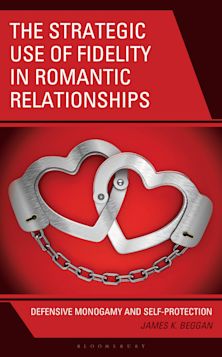The Moral Psychology of Shame
The Moral Psychology of Shame
This product is usually dispatched within 1 week
- Delivery and returns info
-
Free US delivery on orders $35 or over
Description
Few emotions have divided opinion as deeply as shame. Some scholars have argued that shame is essentially a maladaptive emotion used to oppress minorities and reinforce stigmas and traumas, an emotion that leaves the self at the mercy of powerful others. Other scholars, however, have argued that the absence of a sense of shame in a subject—their shamelessness—is tantamount to a vicious moral insensitivity. As the eleven original chapters in this collection attest, however, shame scholars are entering a new phase, one in which scholarship no longer attempts to defend one side of shame against the other, but rather accepts both faces as faithful to the phenomenon to be explained.
At the core of our understanding of shame there are profound disagreements about the importance of the Other in shaping our moral identity. As this collection shows by its study of shame, the difficulty of the connection between Self, Other, and morality spans over millennia and cultures and currently animates important debates at the core of feminism and disability studies.
Contributors: Mark Alfano, Alessandra Fussi, Lorenzo Greco, JeeLoo Liu, Katrine Krause-Jensen, Heidi L. Maibom, Tjeert Olthof, Imke von Maur, Alba Montes Sánchez, Raffaele Rodogno, Alessandro Salice, Krista K. Thomason, Íngrid Vendrell Ferran
Table of Contents
Chapter 1: Themes in Current Psychological Research on Shame, Tjeert Olthof
Chapter 2: The Moral Efficacy of the Confucian Sense of Shame, JeeLoo Liu
Chapter 3: Plato on Shame, Alessandra Fussi
Chapter 4: Hume on Shame, Lorenzo Greco
Chapter 5: The Functions of Shame in Nietzsche, Mark Alfano
Chapter 6: Shame as a Self-Conscious Positive Emotion: Scheler's Radical Revisionary Approach, Íngrid Vendrell Ferran
Chapter 7: Self-Understanding and Moral Self-Improvement in Individual Shame and Shame Based on Group Identification, Alba Montes Sánchez and Alessandro Salice
Chapter 8: The situatednesss of shame and shaming: “Little worlds” and social transformations, Imke von Maur
Chapter 9: Shame and Trauma, Heidi L. Maibom
Chapter 10: Shame, Gender, and Self-Making, Krista K. Thomason
Chapter 11: Shame on Wrong Planet: A study of shame among people on the autism spectrum, Katrine Krause-Jensen and Raffaele Rodogno
About the Contributors
Index
Product details
| Published | Feb 01 2023 |
|---|---|
| Format | Hardback |
| Edition | 1st |
| Extent | 266 |
| ISBN | 9781538177693 |
| Imprint | Rowman & Littlefield Publishers |
| Illustrations | 1 b/w illustrations; 1 b/w photos; |
| Dimensions | 9 x 6 inches |
| Series | Moral Psychology of the Emotions |
| Publisher | Bloomsbury Publishing |
Reviews

ONLINE RESOURCES
Bloomsbury Collections
This book is available on Bloomsbury Collections where your library has access.



































